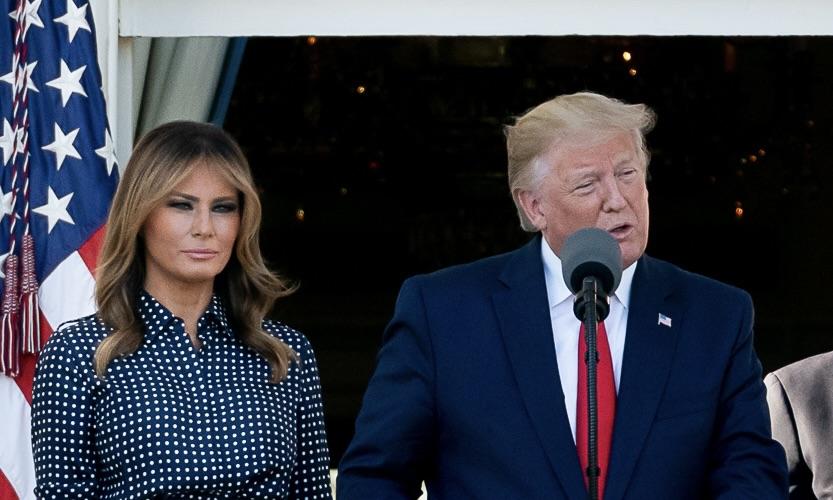Mexico has signaled its intent to impose retaliatory tariffs on American goods in response to President Donald Trump’s recent announcement of sweeping tariffs on Mexican imports. The move threatens to escalate tensions between the two neighboring nations and could impact a wide range of industries, including agriculture and manufacturing, as Mexico considers measures to protect its economy and trade interests.
President Trump’s decision to implement tariffs on Mexican goods was part of his broader strategy to address immigration and trade imbalances. However, Mexico’s government has made it clear that it will not stand idly by. Mexican officials hinted at targeting key U.S. exports, including agricultural products such as corn, pork, and dairy, which could significantly affect American farmers and the broader economy.
The proposed tariffs by Mexico come amid ongoing trade disputes, raising concerns about the long-term consequences for both nations. Experts warn that a tit-for-tat tariff strategy could disrupt supply chains and hurt consumers on both sides of the border.
Impact on U.S.-Mexico Trade Relations
Trade between the United States and Mexico is substantial, with Mexico being the second-largest trading partner for the U.S. in 2023. Any disruption to this relationship could have severe repercussions for industries that rely heavily on cross-border trade.
Agricultural exports are particularly vulnerable, with Mexico being one of the largest buyers of U.S. corn and pork. If tariffs are imposed, American farmers could face higher costs and reduced market access, leading to financial strain in rural areas already struggling with economic challenges.
The automotive sector, which depends on components manufactured in both countries, is also at risk. Increased tariffs could lead to higher prices for vehicles and parts, further exacerbating inflationary pressures in the U.S. economy.
Meanwhile, Mexican officials argue that retaliatory tariffs are necessary to safeguard their domestic economy and send a strong message against what they perceive as unfair trade practices. The potential fallout has sparked debates among policymakers and business leaders about the need for a more collaborative approach to resolving trade disputes.
Public Reaction and Social Media Buzz
News of Mexico’s potential retaliation has ignited discussions on social media, with netizens expressing mixed opinions:
- @TradeWatcher2025: “Mexico has every right to stand up to Trump’s bullying tactics. This was bound to happen!”
- @FarmersFirstUSA: “These tariffs will destroy American agriculture. We need better solutions, not economic warfare!”
- @EconAnalyst23: “Tit-for-tat tariffs only hurt consumers. Both sides need to come to the table and negotiate.”
- @GlobalTradeGuru: “Trump’s policies are reckless. Retaliation from Mexico will just push the U.S. economy closer to recession.”
- @PatriotFarmer88: “It’s time to put America first! We can’t let Mexico dictate our policies.”
- @BorderEconomyPro: “Cross-border trade is too important to jeopardize. Tariffs will hurt both nations more than they help.”
A Call for Diplomatic Resolution
As tensions escalate, economists and trade experts are urging both nations to prioritize diplomacy over retaliatory measures. Collaborative efforts to address trade imbalances and immigration issues could prevent further damage to the economic partnership that underpins millions of jobs and livelihoods on both sides of the border.
While Mexico’s potential tariffs have yet to be finalized, the prospect of an escalating trade war highlights the complexities and risks of unilateral trade actions. Both nations face the challenge of navigating these disputes without undermining their economic stability or bilateral relationship.



 Macron Urges Emergency UN Security Council Meeting as US-Israel Strikes on Iran Escalate Middle East Tensions
Macron Urges Emergency UN Security Council Meeting as US-Israel Strikes on Iran Escalate Middle East Tensions  ICE Hiring Surge Raises Vetting Concerns Amid Rapid Expansion
ICE Hiring Surge Raises Vetting Concerns Amid Rapid Expansion  U.S.-Israel Strike on Iran Escalates Middle East Conflict, Trump Claims Khamenei Killed
U.S.-Israel Strike on Iran Escalates Middle East Conflict, Trump Claims Khamenei Killed  Denver Mayor Orders Police to Protect Protesters, Restricts ICE Access to City Property
Denver Mayor Orders Police to Protect Protesters, Restricts ICE Access to City Property  Trump Warns Iran as Gulf Conflict Disrupts Oil Markets and Global Trade
Trump Warns Iran as Gulf Conflict Disrupts Oil Markets and Global Trade  HHS Adds New Members to Vaccine Advisory Panel Amid Legal and Market Uncertainty
HHS Adds New Members to Vaccine Advisory Panel Amid Legal and Market Uncertainty  Philippines, U.S., and Japan Conduct Joint Naval Drills in South China Sea to Boost Maritime Security
Philippines, U.S., and Japan Conduct Joint Naval Drills in South China Sea to Boost Maritime Security  Trump Media Weighs Truth Social Spin-Off Amid $6B Fusion Energy Pivot
Trump Media Weighs Truth Social Spin-Off Amid $6B Fusion Energy Pivot  Germany and China Reaffirm Open Trade and Strategic Partnership in Landmark Beijing Visit
Germany and China Reaffirm Open Trade and Strategic Partnership in Landmark Beijing Visit  Pentagon Leaders Monitor U.S. Iran Operation from Mar-a-Lago
Pentagon Leaders Monitor U.S. Iran Operation from Mar-a-Lago  Australian PM Calls Alleged Western Australia Terror Plot “Deeply Shocking” After Arrest
Australian PM Calls Alleged Western Australia Terror Plot “Deeply Shocking” After Arrest  USITC to Review Impact of Revoking China’s PNTR Status, Potentially Raising Tariffs on Chinese Imports
USITC to Review Impact of Revoking China’s PNTR Status, Potentially Raising Tariffs on Chinese Imports  Trump Launches Operation Epic Fury: U.S. Strikes on Iran Mark High-Risk Shift in Middle East
Trump Launches Operation Epic Fury: U.S. Strikes on Iran Mark High-Risk Shift in Middle East  Pentagon to Halt Ivy League Programs for U.S. Military Officers Starting 2026
Pentagon to Halt Ivy League Programs for U.S. Military Officers Starting 2026  Israel Launches Fresh Strikes on Iran After Death of Supreme Leader Ayatollah Khamenei
Israel Launches Fresh Strikes on Iran After Death of Supreme Leader Ayatollah Khamenei  NYC Mayor Zohran Mamdani Meets President Trump to Tackle Housing Crisis and ICE Detentions
NYC Mayor Zohran Mamdani Meets President Trump to Tackle Housing Crisis and ICE Detentions  Netanyahu Suggests Iran’s Supreme Leader Khamenei May Have Been Killed in Israeli-U.S. Strikes
Netanyahu Suggests Iran’s Supreme Leader Khamenei May Have Been Killed in Israeli-U.S. Strikes 
































